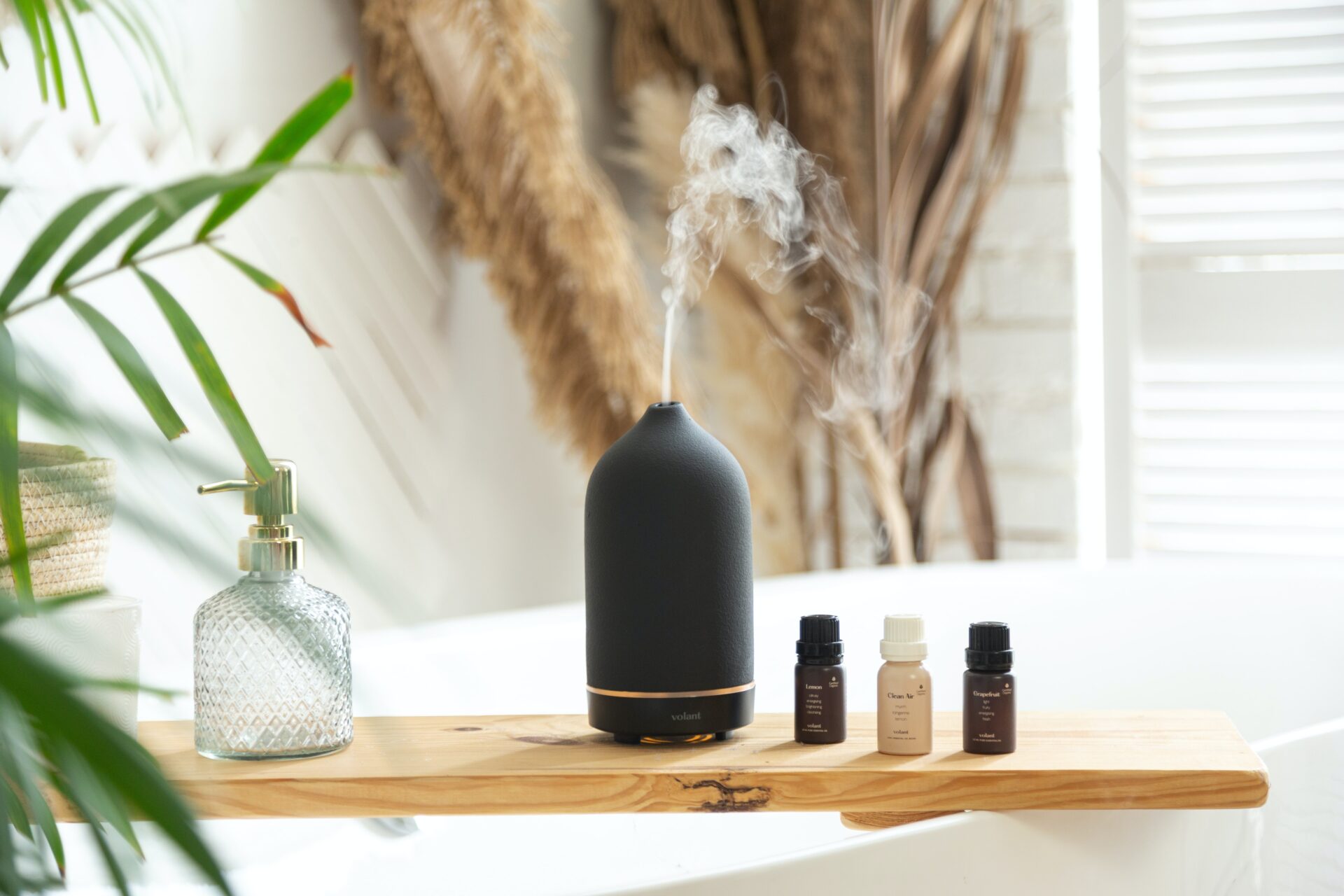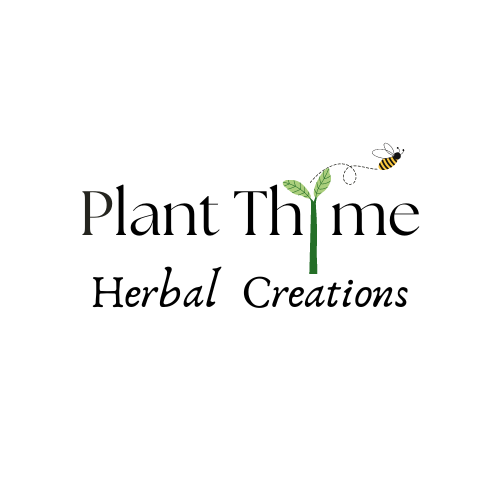How to Use Aromatherapy for Health: Your Ultimate Guide

What is Aromatherapy?
So, what exactly is aromatherapy and how do you use aromatherapy effectively to experience health benefits?
Aromatherapy is the use of natural plant extracts, such as essential oils, hydrosols, and carrier oils, in a variety of ways to heal the mind and body and increase an overall feeling of well-being. Common ways to use aromatherapy are through inhalation-typically through the use of a diffuser or topically when added to a carrier oil.
Aromatherapy is described as both an art and a science since it takes the knowledge of the scientific properties of plants and their oils and combines it with the art of producing a blend that is beneficial to human health.
The use of aromatherapy can have many different benefits to health and wellness. Aromatherapy can help reduce symptoms of stress, anxiety, depression and insomnia, but it can also help to restore balance both spiritually and mentally, promote calmness and relaxation or even increase energy and stamina. Aromatherapy can have a profound impact on both the mind and the body.
Essential Oils and Their Uses
There are plenty of plant oils that have been used for centuries to effectively treat certain ailments within the body. I will briefly list the most common essential oils and their uses.
- Angelica root (Angelica archangelica): grounding, relieves stress.
- Basil ct. linalool (Ocimum basilicum): antispasmodic, useful for menstrual cramps.
- Bay Laurel (Laurus nobilis): relieves muscular aches and pains and lymphatic congestion.
- Bergamot (Citrus × bergamia): uplifting yet calming, antidepressant.
- Black pepper (Piper nigrum): warming, useful during smoking cessation, stimulating circulation, digestive.
- Carrot seed (Daucus carota): useful for regenerative skin care.
- Cardamom (Elettaria cardamomum): antispasmodic, digestive, emotionally warming.
- Cedarwood Atlas (Cedrus atlantica): calming, useful during stressful times, relieves anxiety, mucolytic (helps dissolve mucus congestion).
- Cinnamon leaf (Cinnamomum zeylanicum)*: antibacterial, antifungal, antiviral (always dilute prior to use).
- Chamomile, Roman (Chamaemelum nobile, Anthemis nobilis): antispasmodic, menstrual cramps, sedative, relieves anxiety/stress, insomnia, great for children (comforting, soothing).
- Chamomile, German (Matricaria chamomilla syn. recutita): anti-inflammatory, sedative, relieves skin inflammation.
- Clary sage (Salvia sclarea): antispasmodic, relieves menstrual cramps, aphrodisiac, relaxing, relieves anxiety/stress, and manages labor pain.
- Clove (Eugenia caryophyllata)*: antiviral, antibacterial, heating/warming, (always dilute prior to use).
- Cypress (Cupressus sempervirens): astringent, antispasmodic, treats respiratory complaints, asthma, coughing, hemorrhoids, poor circulation, edema, cellulitis, menstrual and muscle pain, contractive, indicated for varicose veins to prevent them from getting worse, excess sweating.
- Elemi (Canarium luzonicum): balancing to emotions, astringent on the skin.
- Eucalyptus (Eucalyptus globulus, E. radiata)*: expectorant, decongestant, beneficial for flu/cold season, clearing to the mind, energizing, and bronchitis. E. radiata is especially indicated for children with respiratory complaints due to its lower cineole content.
- Fennel (Foeniculum vulgare var. dulce)*: digestive, menstrual irregularities.
- Fir (Abies alba): uplifting, expands the breath, gentle expectorant, relieves congestion, great room spray for cleansing the air.
- Frankincense (Boswellia carterii, B. frereana, B. serrata): immune enhancing, anti-inflammatory, analgesic, cell regenerative, reduces anxiety/depression.
- Geranium (Pelargonium × asperum syn. graveolens): PMS, indicated for hormonal imbalance, antimicrobial.
- Ginger (Zingiber officinale): digestive, useful to eliminate gas, and constipation, warming emotionally and physically, relieves nausea, and warms the lungs.
- Grapefruit (Citrus × paradisi): uplifting, detoxing, and reduces anxiety/depression.
- Helichrysum (Helichrysum italicum): cell regenerative, wound healing, anti-inflammatory, indicated for bruises and swelling.
- Jasmine (Jasminum officinale): aphrodisiac, reduces stress, uplifting yet relaxing.
- Juniper berry (Juniperus communis): detoxifying, cleansing, uplifting, antiviral.
- Lavender (Lavandula angustifolia): calming, reduces anxiety, wound healing, burns, cell regenerative, insect bites, reduces itchiness, general skin care, great for children, antispasmodic.
- Lemon (Citrus × limon): antimicrobial, antioxidant, uplifting, anti-stress, immune enhancing, great for cleaning/cleansing home and environment.
- Lemongrass (Cymbopogon citratus)*: cleansing, antiviral, cellulite.
- Mandarin (Citrus reticulata): calming, great for children (can combine with lavender), slightly more warming citrus aroma.
- Marjoram, Sweet (Origanum vulgare): sedative, antimicrobial, soothing to the nervous system. Melissa (Melissa officinalis): reduces and relieves anxiety, antiviral, calming.
- Myrrh (Commiphora myrrha): soothing to the skin, anti-inflammatory, antiseptic, specific oil for mouth/gum issues.
- Myrtle, Green (Myrtus communis)*: respiratory congestion, bronchitis, flu/colds, expectorant, antispasmodic.
- Neroli (Citrus aurantium var. amara): relieves/ reduces anxiety, antispasmodic, PMS, antidepressant, nourishing, postpartum depression, pregnancy/delivery.
- Niaouli (Melaleuca quinquenervia)*: antimicrobial, supports the immune system.
- Sweet Orange (Citrus sinensis): uplifting, antidepressant, cleansing.
- Oregano (Origanum majorana)*: antiviral, antifungal, antibacterial, good for respiratory infections, derma caustic (always dilute prior to use).
- Palmarosa (Cymbopogon martinii): antibacterial, antiviral, antifungal, gentle skin oil for cellular rejuvenation and acne.
- Patchouli (Pogostemom cablin): antidepressant, anti-inflammatory, soothes the nervous system.
- Peppermint (Mentha × piperita)*: relieves nausea, analgesic for muscular aches and pains, relieves/reduces migraines, energizing, antispasmodic, cooling/ warming (avoid use on children under 30 months of age).
- Pine (Pinus sylvestris): refreshing, cleansing room spray, gentle decongestant for the respiratory system, antimicrobial, expands the breath.
- Petitgrain (Citrus aurantium var. amara): antidepressant, soothes the nervous system, reduces/relieves stress.
- Rose (Rosa × damascena): cell regenerative, nourishing the emotions, aphrodisiac, relieves/reduces stress/anxiety, PMS, menopause.
- Rosemary ct. cineole (Salva rosmarinus ct. cineole)*: indicated for respiratory congestion, bronchitis, colds/flu, expectorant, expands and deepens the breath, energizing, clears the mind, sinus congestion, circulatory stimulant.
- Rosemary ct. verbenone (Salva rosmarinus ct. verbenone): cell regenerative, wound healing, respiratory congestion, mucolytic (dissolves excess mucus).
- Sage (Salvia officinalis)*: menopausal symptoms/hot flashes, antimicrobial, cell regeneration (use with helichrysum essential oil for scar/wound healing).
- Sandalwood (Santalum album, S. spicatum): meditation, nourishing, soothes – 6 dry mucus membranes, soothing to dry skin conditions.
- Spearmint (Mentha spicata): relieves nausea, analgesic, digestive.
- Tea tree (Melaleuca alternifolia): antimicrobial, supports/enhances immune system, antibacterial, antifungal, antiviral.
- Thyme ct. linalool or ct. borneol (Thymus vulgaris, Thymus satureioides): gentle broad spectrum antimicrobial, helpful in treating respiratory and digestive disorders, bacterial and fungal infections, and gastritis.
- Spearmint (Mentha spicata) *: strong antimicrobial, supports/enhances immune system, antibacterial, antiviral, always dilute before using as it can be dermacaustic.
- Vetiver (Vetiveria zizanioides): cooling, grounding, astringent, useful for varicose veins, calming.
- Ylang ylang (Cananga odorata): aphrodisiac, antispasmodic, antidepressant, nourishing.
What are Carrier Oils and How are They Used in Aromatherapy?
Carrier oils are plant oils that are beneficial to the body and are used to dilute the volatile properties of pure essential plant oils. Most pure essential oils are dangerous if applied directly to the skin without diluting them either in water, such as a hydrosol, or a carrier oil.
Common Carrier Oils for Aromatherapy
- Apricot Kernel Oil (Prunus armeniaca): emollient, non-greasy “light & dry” oil, easily
- Avocado Oil (Persea americana): wonderful oil for regenerative skin care, indicated for dry, itchy, or mature skin, antioxidant, nourishes the skin.
- Coconut Oil (Cocos nucifera): emollient, skin protectant, antimicrobial, long shelf life.
- Grapeseed Oil (Vitis vinifera) emollient, easily absorbed (one of the lightest carrier oils), high in vitamin E (antioxidant), inexpensive, long shelf life.
- Jojoba Oil (Simmondsia chinensis): emollient, skin protectant, antimicrobial, balances sebum production.
- Olive Oil (Olea europaea): source of squalane which is emollient, increases the elasticity of the skin, and balances sebum production.
- Sesame Oil (Sesamum indicum): warming, regenerative skin care, dry skin, soothing to the skin, antioxidant, great for hair and nails.
Therapeutic Plant Infused Oils for Aromatherapy
- Arnica Oil (Arnica montana): indicated for bruises, varicose veins, burns, strains and sprains, arthritis, and myalgia.
- Borage Oil (Borago officinalis): emollient, nourishing, one of the few plant sources of GLA (Gamma Linoleic Acid – the most important essential fatty acid for skin health). Aids in skin repair, reduces signs of aging.
- Calendula Oil (Calendula officinalis): anti-inflammatory, wound healing, soothes dry irritated skin, insect bites, cell regenerative. Calendula (Calendula officinalis)
- Primrose Oil (Oenothera biennis): emollient, one of the few plant sources of GLA (Gamma Linoleic Acid – the most important essential fatty acid for skin health). Aids in skin repair, reduces signs of aging.
- Rosehip Seed Oil (Rosa mosqueta, Rosa canina): emollient, one of the few plant sources of GLA (Gamma Linoleic Acid – the most important essential fatty acid for skin health), high in carotenoids (antioxidant, anti-aging). Aids in skin repair, reduce signs of aging.
*plant-infused oils are made by combining plant parts (blooms, leaves, stems & roots-depending on the plant) and immersing them into a carrier oil of choice and allowing that mixture to set for 4-6 weeks minimum, long enough for the oil to absorb the beneficial plant properties.*
What are Hydrosols and How are They Used in Aromatherapy?
Hydrosols, also known as floral waters, are made by distilling fresh plant matter (flowers, leaves, stems, etc) into essential oils. The water left over is essentially hydrosol. They are not nearly as concentrated as the essential oils being extracted, but they still contain beneficial plant properties. Be sure to store all hydrosols in the refrigerator. Average shelf life: 12-24 months.
- Hydrosols can be added to natural cosmetic products to increase the moisture content of the products.
- Hydrosols can be used as an effective skin toner or astringent (Witch Hazel)
- Hydrosols can be used as an effective after-sun care, to relieve burning and itchiness of bug bites or poison ivy/oak or just simply to add moisture to dry or irritated skin
- Hydrosols can be used on infants and children safely due to the strong dilution of the plant properties
Common Plants Used For Hydrosols
- Chamomile– Roman or German: antiinflammatory, cooling, indicated for eczema, psoriasis, rashes, acne and other inflammatory conditions.
- Clary sage: astringent, antidepressant, PMS, hot flashes.
- Helichrysum: anti-inflammatory, cooling, useful for inflamed skin conditions.
- Lavender: relaxing, great for children in baths or as a spritzer, anti-inflammatory.
- Melissa: stress relieving, antiviral, good for sitz bath for herpes simplex.
- Neroli: stress relieving, all around skin care, astringent.
- Rose: astringent, general skin care, beautiful aroma.
- Witch Hazel: astringent, wound cleanser, insect bites, acne, oily skin.
How to Use Aromatherapy Effectively
Terms such as therapeutic grade, pharmaceutical grade and medical grade are not regulated aromatherapy terms and therefore have little meaning so it is best to research the brand to validate its source, potency and effectiveness. Plant Therapy and Mountain Rose are highly respected and reputable companies offering high-quality and sustainably sourced essential oils.
Massage/Body Oil
Application: 2.5 – 10% dilution, 15-60 drops per ounce of carrier oil such as jojoba, sesame or sweet almond oil
Baths
Mix 2 – 12 drops (depending on the essential oil) into a teaspoon of a dispersing agent such as natural bath gel, coconut emulsifier, etc. Add to bath and stir just before entering the water. Vegetable oil may also be used to dilute essential oils, however, it will not disperse in the water and will make tub surfaces slippery.
Steam inhalation
Add up to 6 drops of essential oil into boiling water. Cover your head with a towel and breathe through the nose. Keep your eyes closed!
Aromatic sprays
Add up to 15-20 drops per gallon of distilled water. Shake before using.
Diffusion
Check the aromatherapy diffuser manufacturer’s guidelines for instructions for use, before adding an essential oil blend.
Some Best-Selling Blends to Try By Plant Therapy
Blends for Children
Blends for Adults
Plant Therapy is constantly adding fun, new blends to its already extensive collection of aromatherapy products. They have so many new and exciting blends, that it is hard to decide which ones to buy.
I hope you found this guide to be helpful. Have fun creating your own blends and learning how to incorporate them into your daily routines to reap the benefits of all the plant goodness nature has to offer! Thanks for reading!
Footnotes
National Association for Holistic Aromatherapy www.NAHA.org
Mount Sinai www.mountsinai.org
Cleveland Clinic www.health.clevelandclinic.org
